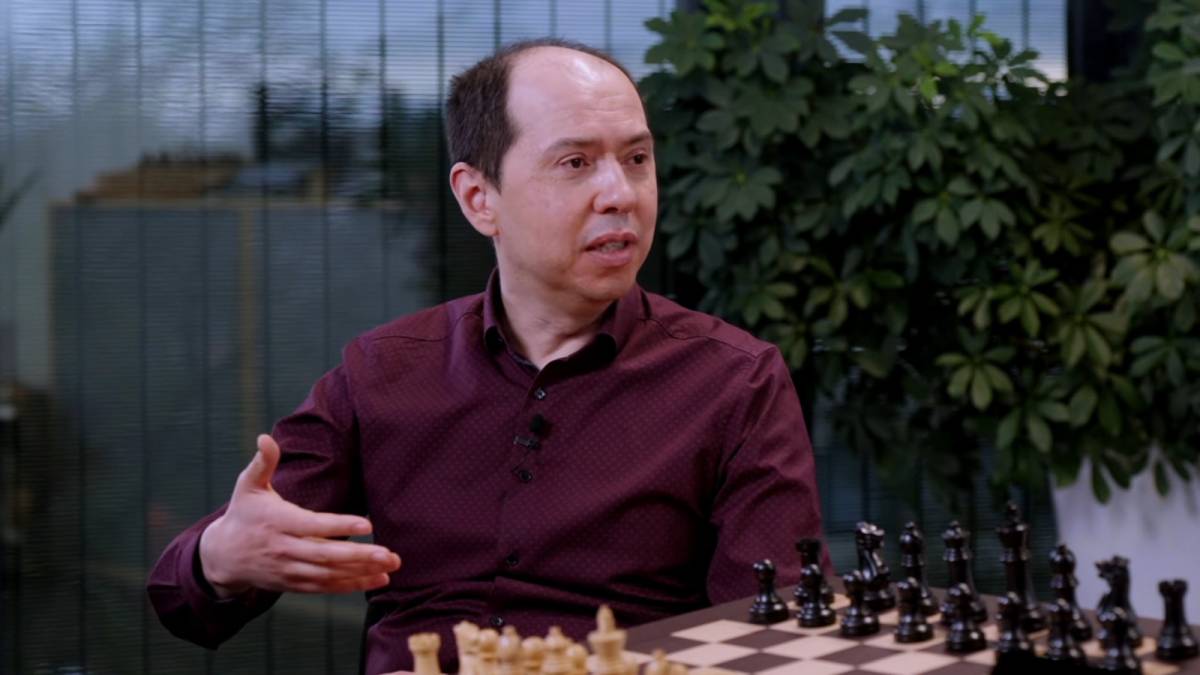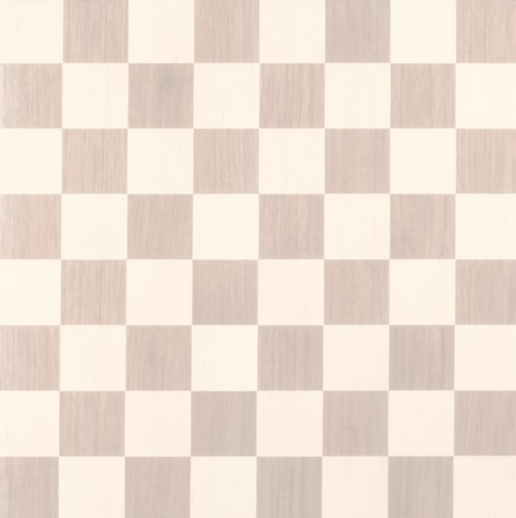
Chess, a game of strategy and intellect, has long been recognized for its cognitive benefits. It enhances memory, improves problem-solving skills, and fosters strategic thinking.
For individuals with disabilities, chess offers an additional layer of empowerment. It provides an equal playing field where physical abilities are secondary to mental prowess.
This article delves into the transformative power of chess in empowering players with disabilities, exploring its cognitive benefits, the adaptive tools available, and the success stories that inspire.
Creating Equal Opportunities in Chess
Chess offers a unique platform that transcends physical limitations, allowing individuals to compete based on intellect and strategy. This inclusivity empowers individuals with disabilities, enabling them to showcase their talents on an equal footing with their peers.
According to Dr. Dianne Horgan, a psychology professor at Memphis State University, chess has significantly enhanced cognitive abilities such as critical thinking, problem-solving, and memory. Even parents unfamiliar with chess can learn alongside their children.
She emphasizes that learning the game together can be a fun and bonding experience. "There's no real reason for parents to think they have to be experts before they can sit down and play with their kids," she states.
Unlike sports that rely on physical attributes, chess is a mental exercise that evaluates players solely on their strategic thinking and problem-solving skills. This makes chess an exceptional tool for fostering intellectual growth, creating a level playing field for participants of all ages, genders, and physical abilities.
The inclusive nature of chess allows individuals from different backgrounds to engage in the game, promoting equal opportunities for intellectual development.
As the saying goes…
“There are two classes of men; those who are content to yield to circumstances and who play whist; those who aim to control circumstances, and who play chess.”—Mortimer Collins (1827 – 1876), English Poet and Novelist
This quote encapsulates the essence of chess as a game of control and strategy in which players react to events and actively shape outcomes through their decisions.
Participation in chess can significantly boost self-esteem and self-worth, especially among players with disabilities. Success in the game offers a sense of achievement, reinforcing self-confidence and pride in one's mental abilities.
Through tournaments and local clubs, individuals can gain recognition for their intellectual prowess, affirming their contributions to the chess community.
Benefits for Individuals with Attention Related Disabilities
The National Joint Committee for Learning Disabilities describes learning disabilities as disorders that cause significant listening, speaking, writing, reasoning, or math challenges.
These disabilities are thought to be linked to central nervous system dysfunction, though the exact causes remain unclear. The impact can vary greatly, from mild to severe, and learning disabilities often coexist with other conditions, such as mobility impairments or Attention Deficit Disorder.
The benefits of playing chess can be particularly profound for individuals with cognitive or attention-related disabilities.
As players enhance their problem-solving abilities and memory, they often experience an increase in self-confidence, empowering them to tackle challenges head-on. Moreover, chess is a powerful tool for improving memory retention and increasing concentration.
Promoting Emotional Resilience and Mental Fitness Through Chess

Photo by Facebook on facebook.com
Alt Text: left and right brain unique skills
Chess is a game of intellect and strategy and a powerful tool for promoting emotional resilience and mental fitness, especially beneficial for individuals with disabilities. Here's how:
Building Emotional Resilience
- Learning from Losses: Chess teaches players to analyze defeats, fostering a growth mindset where challenges are seen as learning opportunities.
- Managing Emotions: Players must maintain composure and focus, which helps them learn to manage emotions effectively, which is crucial for resilience in daily life.
Enhancing Patience and Discipline
- Delayed Gratification: Chess teaches the value of patience and timing by requiring players to wait for the right moment to execute strategies.
- Consistent Practice: Regular practice in chess instills discipline, which can translate into achieving personal goals in other areas of life.
Engaging in a Mental Workout
- Cognitive Engagement: Chess stimulates critical thinking, memory, and problem-solving skills, keeping the brain active.
- Stress Relief: The game temporarily escapes stress, offering therapeutic benefits and relaxation.

Photo by Journal Highschool Science
Alt Text: multi-dimensional facets of the chess-brain
Therapeutic Benefits for Individuals with Disabilities
- Stress Reduction: Chess helps reduce anxiety and stress, promoting mental well-being.
- Boosting Confidence: As skills improve, players experience increased self-esteem, empowering them to face challenges beyond the game.
Practical Applications in Daily Life
- Coping Strategies: Chess teaches calmness under pressure and emotional management, aiding in navigating stressful situations.
- Problem-Solving in Real Life: The strategic thinking developed through chess enhances problem-solving abilities in everyday life.
Chess is a valuable tool for emotional resilience and mental fitness, offering therapeutic benefits that build emotional strength, reduce stress, and enhance cognitive abilities. It primarily benefits individuals with disabilities, fostering confidence and social interaction.
Adaptive Tools and Accessibility in Chess
Chess is a game of strategy and intellect; specific physical impairments may require adaptive tools to facilitate gameplay. Here are some of the most commonly used adaptive tools in chess:
Braille Chess Sets
These are specially designed for visually impaired players. The chess pieces and board are marked with braille, allowing players to identify different pieces and their positions.
The Scoop on Blind Chess with Joan DuBois
Large Print Chess Boards
These boards have larger squares and pieces, making them easier for players with visual impairments to see. The contrast between the colors of the squares and pieces is also enhanced to aid visibility.
Chess Clocks with Large Buttons
These are beneficial for players with motor disabilities. The large buttons are more accessible to the press, reducing the physical strain during timed games.
3D Printed Chess Pieces
These can be customized according to the player’s needs. For instance, they can be designed with specific shapes or textures to help players distinguish between pieces.
These tables are designed with a suitable height and space underneath to accommodate a wheelchair, allowing players to reach the chess board comfortably.
These adaptive tools enable players with disabilities to participate in chess and enhance their gaming experience by catering to their specific needs. It’s important to note that the choice of adaptive tools should be based on the individual’s unique requirements and preferences.
Making Chess Tournaments More Accessible for Players with Disabilities
Through a variety of strategies and accommodations, chess tournaments can be made more accessible for players with disabilities. The goal is to create an inclusive environment where everyone, regardless of their physical or cognitive abilities, can participate and compete.
The 23rd International Physically Disabled Chess Association (IPCA) World Individual Chess Championship, held in 2024, is a significant event that underscores the power of chess as an inclusive sport.
Hosted by the IPCA, this championship brought together players from various countries with unique challenges to compete in a prestigious global tournament. The event showcased high-level competition and highlighted the shared passion among participants and the sense of community.
Here are some vital points for starting a chess club and tournaments for people with disabilities.
Accessibility and Accommodations
- Select a venue that is fully accessible, incorporating features like wheelchair ramps, wide doorways, and accessible restrooms.
- Provide adaptive chess equipment, such as large print or braille chess sets, talking chess clocks, and magnifiers.
- Arrange the space to ensure easy navigation for those using mobility aids like wheelchairs or walkers.

Photo by Health Online on healthonline.washington.edu
Alt Text: safety and standard ramp for PWDs
Inclusive Policies and Outreach
- Develop and enforce policies that emphasize inclusion and strictly prohibit discrimination.
- Collaborate with disability organizations, educational institutions, and community centers to promote the club and attract members.
- Offer introductory lessons and mentorship programs to welcome new players, regardless of their skill level or abilities.
Tournaments and Events
- Organize tournaments with different divisions tailored to various disability categories.
- Host simultaneous exhibitions featuring grandmasters to motivate players and enhance the club's visibility.
- Participate in the International Day of Persons with Disabilities (December 3rd) by hosting special events.
Community and Support
- Foster a supportive and friendly atmosphere where members can socialize and form connections.
- Provide resources related to chess and disabilities, including books, videos, and links to relevant organizations.
- Celebrate the achievements and milestones of members to build confidence and strengthen community bonds.
Partnerships and Funding
- Establish partnerships with disability groups, chess organizations, and local businesses to secure funding, promote the club, and share resources.
- Seek grants and sponsorships to help cover equipment, venue, and event expenses.
- Keep membership dues affordable while ensuring they are sufficient to sustain the club.
By focusing on accessibility, inclusivity, and community-building, a chess club can empower individuals with disabilities and foster a love for the game. With creativity, dedication, and support, it can grow into a vibrant community for players of all abilities.
Success Stories and Initiatives
The world of chess has seen numerous players with disabilities who have made significant contributions and achieved remarkable success. Their stories serve as an inspiration and testament to the empowering nature of chess.
Here are a few notable examples:
IM (International Master) Justin Sarkar
Diagnosed with Asperger’s Syndrome, a form of autism. He is recognized as an International Master and has achieved notable success in various tournaments. Both challenges and accomplishments have marked Sarkar's journey in chess.
Sarkar has made a name for himself in the international chess circuit. His ability to focus intensely on the game has helped him achieve the prestigious title.
GM (Grandmaster) Thomas Luther
Thomas Luther is the first disabled player to achieve the title of Grandmaster. He has a condition known as Dysmelia, which affects his arm.
Despite this, he has had a successful career in chess, even serving on the Federation International des Echecs (FIDE), also known as the World Chess Federation, to promote chess among individuals with disabilities.
WCM (Woman Candidate Master) Jennitha Anto
Jennitha Anto is a prominent chess player. She has won the World Chess Championship for the Physically Disabled six times, including an exceptional streak of five consecutive titles from 2013 to 2017.
Awarded the title of Woman International Master (WIM), she has displayed outstanding skill and perseverance in her chess career.
Despite contracting polio at age three, which necessitated a wheelchair, Anto continues to pursue her passion for chess and hopes to become a Grandmaster one day.
‘Beat all struggles through hard work - Chess Champ Jennitha Anto
FM (FIDE Master) Stanislav Babarykin
FIDE Master (FM) Stanislav Babarykin, the 2018 IBSA World Chess Champion, is a remarkable player who, despite being visually impaired, holds the record as a six-time IPCA World Champion. He is also well-known for his book "Four Knight Games."
Jessica Lauser
Jessica Lauser is a distinguished American chess player and the current U.S. Blind Chess Champion, holding the title for five consecutive years. She has made history as the first and only woman to win the national championship for blind and visually impaired players, securing this title every year since 2018.
Lauser's vision was profoundly affected by retinopathy of prematurity, a condition that caused severe vision loss shortly after her birth. This condition left her with complete blindness in one eye and significantly impaired vision in the other.
She discovered chess at seven, using the game to cope with bullying during her school years. Her exceptional skill in chess earned her the nickname "Chessica."
“I love chess. When I play chess, it allows me to step outside of and away from all the difficulties.”—Jessica "Chessica" Lauser
Empowering Minds: The Impact of Chess for Individuals with Disabilities
In conclusion, chess is a powerful tool for empowerment and cognitive development among individuals with disabilities.
The game offers numerous benefits, including improved social skills and overall well-being. With adaptive tools, chess becomes more accessible, allowing players with disabilities to participate fully in tournaments.
Despite the challenges faced, the chess community strives for inclusivity, encouraging participation from all individuals. Success stories of chess players with disabilities serve as a testament to the transformative power of the game.
Enabling chess clubs for individuals with disabilities further promotes the game’s reach and impact.
Definition of Terms
Autism
Autism spectrum disorder (ASD) is a convoluted neurodevelopmental disorder characterized by a spectrum of challenges in social communication, repetitive behaviors, and restricted interests.
Braille
Braille is read by moving the fingertips over the raised dots. Both hands are usually involved, with the index fingers doing most of the reading.
Central Nervous System
The Central Nervous System (CNS) is a vital component of the human nervous system, primarily consisting of the brain and spinal cord. It serves as the central processing center for the body, controlling various functions essential for survival and interaction with the environment.
Motor Disabilities
Motor disabilities encompass a range of conditions impair an individual's ability to move, coordinate, or control their body. These disabilities can arise from congenital conditions, illnesses, injuries, or degenerative diseases and significantly affect daily activities and quality of life.
Self-esteem
Self-esteem refers to the confidence an individual has in their value, skills, or principles, encompassing their self-perception and emotional well-being.
Self-worth
Self-worth refers to the recognition of one’s intrinsic value as a person. It involves the belief that everyone is worthy of respect and love, regardless of external accomplishments or the need for approval from others.
References
(n.d.). https://ipcachess.org/23rd-ipca-world-individual-chess-championship-2024-photo-gallery/
(n.d.). https://www.aile.gov.tr/eyhgm-en/haberler/seeded-confederation-for-disabled-people-held-by-world-chess-federation-fide-for-the-first-time/#:~:text=World%20Chess%20Champion%20FIDE%20Master%20(FM)%20Stanislav%20BABARYK%C4%B0n%20holdsthe%20record%20for%20the%
(n.d.). https://new.uschess.org/news/jessica-lauser-u-s-blind-champion-first-woman-capture-title
At a glance: Retinopathy of Prematurity. (2023, November 15). National Eye Institute. Retrieved August 19, 2024, from https://www.nei.nih.gov/learn-about-eye-health/eye-conditions-and-diseases/retinopathy-prematurity
Checkmate: Teaching Chess to Develop Critical Thinking Skills. (n.d.). Knovva Academy. Retrieved August 19, 2024, from https://www.knovva.org/checkmate-teaching-chess-to-develop-critical-thinking-skills
Factors Affecting the Perception of Disability: A Developmental Perspective. (2021, June 21). https://www.ncbi.nlm.nih.gov/pmc/articles/PMC8255380/
Ferguson, R. C. (n.d.). The Benefits of Chess in Education. ChessEDU. Retrieved August 19, 2024, from http://www.chessedu.org/wp-content/uploads/BenefitsOfChessInEd-1.pdf
International Day of Persons with Disabilities | United Nations. (2023, December 3). the United Nations. Retrieved August 19, 2024, from https://www.un.org/en/observances/day-of-persons-with-disabilities
Kniggendorf, A. (2020, December 17). How A Blind Kansas City Chess Champion Outmaneuvers Obstacles Like Poverty. KCUR. Retrieved August 19, 2024, from https://www.kcur.org/arts-life/2020-12-17/how-a-blind-kansas-city-chess-champion-outmaneuvers-obstacles-like-poverty
Learning disabilities and Attention Deficit Disorder | Accessibility Resources. (n.d.). SUNY Oswego. Retrieved August 19, 2024, from https://www.oswego.edu/accessibility-resources/learning-disabilities-and-attention-deficit-disorder
Mobility Impairments | DO-IT. (n.d.). University of Washington. Retrieved August 19, 2024, from https://www.washington.edu/doit/mobility-impairments
Poliomyelitis (Polio) in Children - Health Encyclopedia. (n.d.). University of Rochester Medical Center. Retrieved August 19, 2024, from https://www.urmc.rochester.edu/encyclopedia/content.aspx?ContentTypeID=90&ContentID=P02536
Putnam, K. (n.d.). 8 Critical Thinking Skills Kids Learn at Chess Camp. Whitby School. Retrieved August 19, 2024, from https://www.whitbyschool.org/passionforlearning/8-critical-thinking-skills-kids-learn-at-chess-camp
Quotes. (n.d.). Exeter Chess Club. Retrieved August 19, 2024, from http://www.exeterchessclub.org.uk/quotes
Rosenberg, R. (2024, February 12). Asperger Syndrome - StatPearls. NCBI. Retrieved August 19, 2024, from https://www.ncbi.nlm.nih.gov/books/NBK557548/
Sarkar on Norm #3: Location, Location, Location | US Chess.org. (2015, May 28). US Chess Federation. Retrieved August 19, 2024, from https://new.uschess.org/news/sarkar-on-norm-3-location-location-location
The United States Chess Federation - FIDE FAQ's. (n.d.). US Chess Federation. Retrieved August 19, 2024, from https://www.uschess.org/index.php/beta-FAQs/FIDE-FAQ-s.html
What are LD? | NJCLD. (n.d.). National Joint Committee on Learning Disabilities. Retrieved August 19, 2024, from https://njcld.org/ld-topics/
What is dysmelia? (n.d.). Our Normal. Retrieved August 19, 2024, from https://ournormal.org/en/disabilities/what-is-dysmelia/













Leave a comment
All comments are moderated before being published.
This site is protected by hCaptcha and the hCaptcha Privacy Policy and Terms of Service apply.